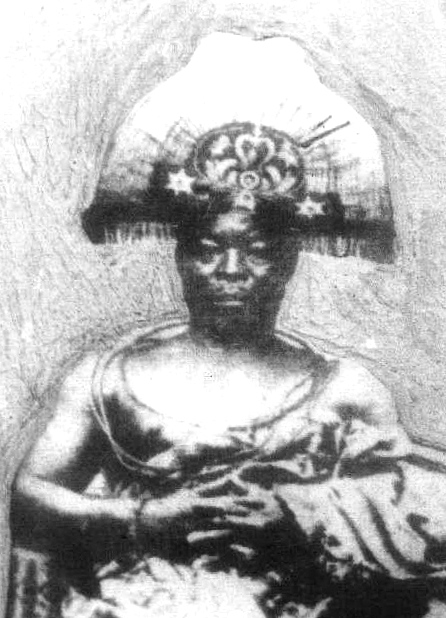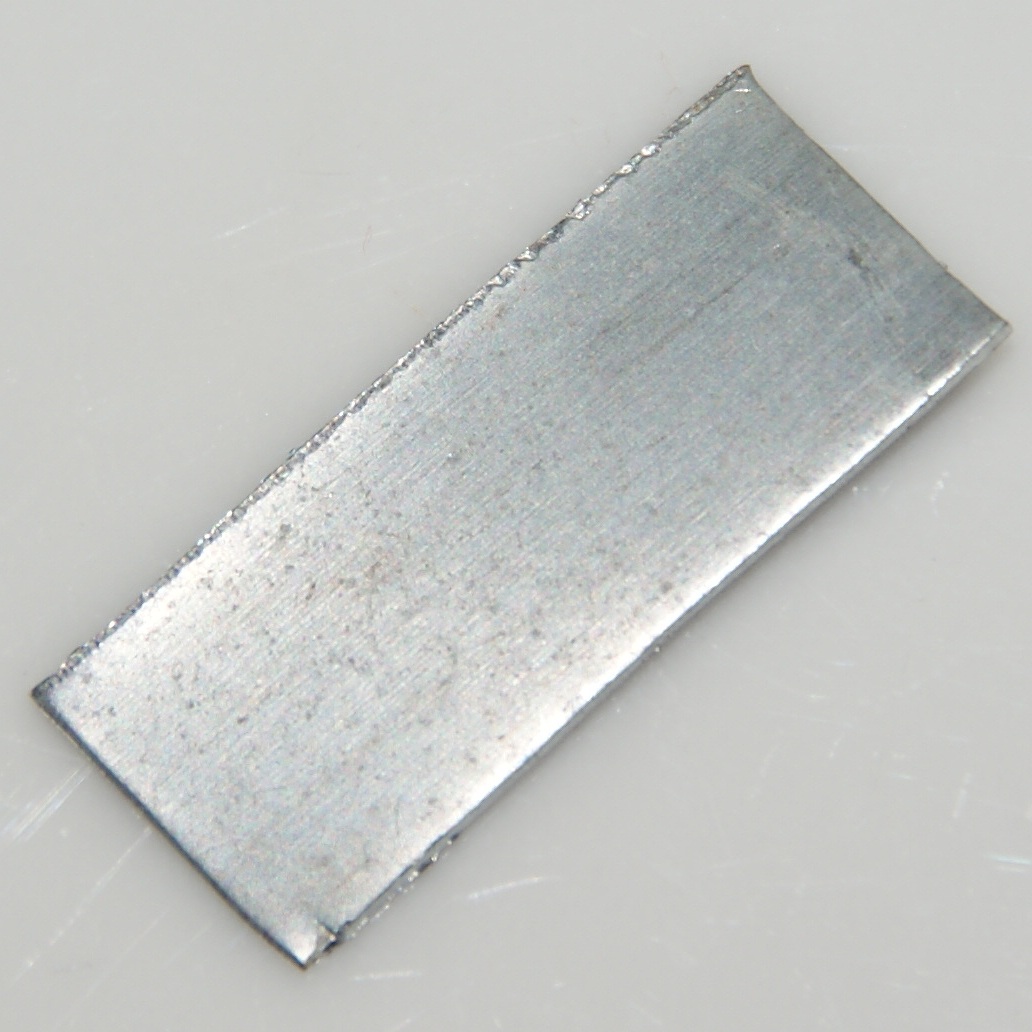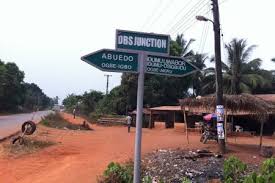|
Uwa (Ogiso)
Uwa (died ) was the twenty-fifth (king) of Igodomigodo, a kingdom that later became part of the Benin Empire, from until his death. He was the son of Ogiso Odoligie and ruled during a period of political transformation shaped by earlier reforms. His reign saw the expansion of the Igodomigodo monarchy's influence from the River Oroghodo in the east to the River Ohosu in the west. He ordered the expulsion of the nobleman Ovio, an event that led to migrations towards present-day Delta State in Nigeria. Unlike his father, who had prioritised military campaigns, Uwa relied on diplomacy and political maneuvering to maintain authority. Trade expanded during his rule, with merchant guilds establishing networks reaching present-day Ghana, Dahomey, and the Niger River basin. Brass casting was introduced to the kingdom in this period, though it did not become widespread until the 13th century. Uwa was succeeded by his son, Ehenneden, who continued efforts to consolidate the kingdom's ... [...More Info...] [...Related Items...] OR: [Wikipedia] [Google] [Baidu] |
Ogiso
The were the earliest known ruling monarchy of the Edo kingdom of Igodomigodo, founded by Igodo, the first Ogiso. The monarchy began around 900 AD and lasted until the early 12th century when it was succeeded by the Oba monarchy. The Ogiso monarchy influenced the early sociopolitical structure of the region by introducing centralised governance and laying the foundations for the Benin Empire. Throughout its existence, the Ogiso monarchy had thirty-one rulers and notable among them were Ogiso Igodo, the first ruler, and Ogiso Ere, who implemented several administrative and cultural reforms. This era saw the establishment of settlements, the integration of various chiefdoms, and the growth of proto-urban centers, with Udo and Benin City being prominent examples. The decline of the Ogiso monarchy began with the rule of the last Ogiso, Owodo, whose reign was marked by internal conflict and public dissatisfaction. This led to his banishment and a period of interregnum, during wh ... [...More Info...] [...Related Items...] OR: [Wikipedia] [Google] [Baidu] |
Oba Of Benin
The Oba of Benin is the traditional ruler and the custodian of the culture of the Edo people and all Edoid people. The then Kingdom of Benin (not to be confused with the modern-day and unrelated Republic of Benin, which was then known as Dahomey) has continued to be mostly populated by the Edo (also known as Benin ethnic group). The dynasty is sometimes called the "Eweka dynasty", after its first ruler, Eweka I, and was preceded by the Ogiso monarchy. In 1897, a British military force of approximately 1,200 men under the command of Sir Harry Rawson mounted the Benin punitive Expedition. The force was dispatched in retaliation to the ambush of a British party, at Ugbine village near Gwato on 4 January 1897 by a group of Benin soldiers who were acting without orders from the Oba; the ambush had led to the deaths of all but two of the British party. The British force captured the capital of the Kingdom of Benin, sacking and burning the city while forcing the Oba of Benin, Ov ... [...More Info...] [...Related Items...] OR: [Wikipedia] [Google] [Baidu] |
Kraus Reprint
Hans Peter Kraus (October 12, 1907 – November 1, 1988), also known as H. P. Kraus or HPK, was an Austrian-born American book dealer described as "without doubt the most successful and dominant rare book dealer in the world in the second half of the 20th century" and in a league with other rare book dealers such as Bernard Quaritch, Guillaume de Bure and A.S.W. Rosenbach. Kraus specialized in medieval illuminated manuscripts, incunables (books printed before 1501), and rare books of the 16th and 17th centuries, but would purchase and sell almost any book that came his way that was rare, valuable and important. He prided himself in being "the only bookseller in history...to have owned a Gutenberg Bible and the Psalters of 1457 and 1459 simultaneously," stressing that "'own' here is the correct word, as they were bought not for a client's account but for stock." Early life and career in Europe Kraus was born on October 12, 1907, in Vienna, Austria. After working for R. Lechner i ... [...More Info...] [...Related Items...] OR: [Wikipedia] [Google] [Baidu] |
Oguola
Oguola was the fifth Oba of the Benin Kingdom, reigning from 1280 AD to 1295 AD. His reign was marked by achievements in fortifying the city of Benin, enhancing its defences, and contributing to the cultural and economic development of the kingdom. Born into the royal family, Oguola's ascent to the throne was prompted by the extended absence of his elder brother, Prince Obuobu, who was engaged in military campaigns. This unorthodox succession was a pragmatic decision by the kingdom's elders and advisors to ensure stability and effective leadership during a critical period. Oba Oguola's commitment to the Benin Kingdom's welfare and security was evident in his initiatives to fortify Benin City, including the construction of the first and second moats. These moats, characterised by their impressive size and strategic design, served as defensive barriers to protect the city from external threats. Furthermore, Oguola played a role in the revival of the ancient guild of brass castin ... [...More Info...] [...Related Items...] OR: [Wikipedia] [Google] [Baidu] |
Brass
Brass is an alloy of copper and zinc, in proportions which can be varied to achieve different colours and mechanical, electrical, acoustic and chemical properties, but copper typically has the larger proportion, generally copper and zinc. In use since prehistoric times, it is a substitutional alloy: atoms of the two constituents may replace each other within the same crystal structure. Brass is similar to bronze, a copper alloy that contains tin instead of zinc. Both bronze and brass may include small proportions of a range of other Chemical element, elements including arsenic, lead, phosphorus, aluminium, manganese and silicon. Historically, the distinction between the two alloys has been less consistent and clear, and increasingly museums use the more general term "list of copper alloys, copper alloy". Brass has long been a popular material for its bright gold-like appearance and is still used for drawer pulls and door handle, doorknobs. It has also been widely used to ma ... [...More Info...] [...Related Items...] OR: [Wikipedia] [Google] [Baidu] |
Zinc
Zinc is a chemical element; it has symbol Zn and atomic number 30. It is a slightly brittle metal at room temperature and has a shiny-greyish appearance when oxidation is removed. It is the first element in group 12 (IIB) of the periodic table. In some respects, zinc is chemically similar to magnesium: both elements exhibit only one normal oxidation state (+2), and the Zn2+ and Mg2+ ions are of similar size. Zinc is the 24th most abundant element in Earth's crust and has five stable isotopes. The most common zinc ore is sphalerite (zinc blende), a zinc sulfide mineral. The largest workable lodes are in Australia, Asia, and the United States. Zinc is refined by froth flotation of the ore, roasting, and final extraction using electricity ( electrowinning). Zinc is an essential trace element for humans, animals, plants and for microorganisms and is necessary for prenatal and postnatal development. It is the second most abundant trace metal in humans after iron, an import ... [...More Info...] [...Related Items...] OR: [Wikipedia] [Google] [Baidu] |
Ilorin
Ilorin is the capital city of Kwara State located in the Western region of Nigeria. The city is a major hub for transportation and commerce in the region. . Retrieved 18 February 2007 Although Ilorin is classified under the North-Central geopolitical zone, the city is considered a Yoruba city by all historical and sociological standards. As of the 2006 census, it had a population of 777,667, making it the 7th largest city by population in Nigeria. History Ilorin was founded by the Yoruba, one of the three largest ethnic groups in Nigeria, in the late 18th century. It became a provincial military headquarters within the Oyo Empire until 1817, when the local Kakanfo (field marshal) named Afonja rebelled, supported by the Hausa Shehu Alimi, an itinerant Islamic preacher and teacher. Their alliance eventually broke down over the Muslims' increasing power and Afonja's refusal to convert, and he was eventually assassinated. Alimi's son Abd al-Salam pledged allegiance to ... [...More Info...] [...Related Items...] OR: [Wikipedia] [Google] [Baidu] |
Idah
Idah is a town in Kogi State, Nigeria, on the eastern bank of the Niger River in the middle belt region of Nigeria. It is the headquarter of the Igala Kingdom, and also a Local Government Area with an area of 36 km. Idah had a population of 79,815 at the 2006 census. History The town is the traditional capital of the Igala Kingdom, whose traditional ruler, the Attah Igala, is currently Matthew Alaji Opaluwa Oguche Akpa II. Idah is an important fishing port and Market trading town in Nigeria with an outpost of the Nigeria Navy referred to as Nigeria Navy Ship Lugard. The town as a port of trade was frequented by local and foreign traders who traded agricultural produces and minerals mostly. Bronze rings and Cowries were the predominant currency for trade. Geography Idah, an old river port, lies on the eastern bank of the river Niger at . Economy The town is a major food supplier of Kogi State. It has commercial routes on the river Niger linking Lokoja, the Kogi state cap ... [...More Info...] [...Related Items...] OR: [Wikipedia] [Google] [Baidu] |
Illah
Illah is a small town located on the bank of the Niger River, River Niger, in Oshimili North Local Government Area of Delta State of Nigeria. It is situated on a table-land, some twenty-five kilometres north of Asaba, the State capital. Illah is one of the Igbo-speaking towns in Delta State, whose people belong to the Igbo people, Igbo Ethnic group who are often referred to as Anioma people, Anioma people or Delta Igbos. Illah has as her immediate neighbours, Ebu to the North, Asaba and Ugbolu to the South, Akwukwu-Igbo to the West and the majestic River Niger to the East. The town is made up of Nine villages, namely ''Umuagwu, Umutei, Ajaji, Ukwumege, Umutedem, Onya, Ukpologwu, '''', Ogbe-Olu'' and ''Ogbe-Orji.'' Origins The Illah people trace their origin to three different sources. The three sources of ethnic descent which the Illah people lay claim to include Igbo, Igala and Benin: (i) The Igbo Descendants: ''Umuagwu, Umutei, Ajaji, Umutedem,'' ''Onya,'' ... [...More Info...] [...Related Items...] OR: [Wikipedia] [Google] [Baidu] |
Royal Court
A royal court, often called simply a court when the royal context is clear, is an extended royal household in a monarchy, including all those who regularly attend on a monarch, or another central figure. Hence, the word ''court'' may also be applied to the wikt:coterie, coterie of a senior member of the nobility. Royal courts may have their seat in a designated place, several specific places, or be a mobile, itinerant court. In the largest courts, the royal households, many thousands of individuals constituted the court. These courtiers included the monarch or noble's camarilla and retinue, household, nobility, clergy, those with court appointments, bodyguards, and may also include emissaries from other kingdoms or visitors to the court. Prince étranger, Foreign princes and foreign nobility in exile may also seek refuge at a court. Near Eastern and Far Eastern courts often included the harem and Concubinage, concubines as well as eunuchs who fulfilled a variety of functions. At ... [...More Info...] [...Related Items...] OR: [Wikipedia] [Google] [Baidu] |
Igbo Language
Igbo ( , ; Standard Igbo: ''Ásụ̀sụ́ Ìgbò'' ) is the principal native language cluster of the Igbo people, an ethnicity in the Southeastern part of Nigeria. Igbo languages are spoken by a total of 31 million people. The number of Igboid languages depends on how one classifies a language versus a dialect, so there could be around 35 different Igbo languages. The core Igbo cluster, or Igbo proper, is generally thought to be one language but there is limited mutual intelligibility between the different groupings (north, west, south and east). A standard literary language termed 'Igbo izugbe' (meaning "general igbo") was generically developed and later adopted around 1972, with its core foundation based on the Orlu, Imo, Orlu (Isu people, Isu dialects), Anambra (Awka dialects) and Umuahia (Ohuhu dialects), omitting the nasal vowel, nasalization and aspiration (phonetics), aspiration of those varieties. History The first book to publish Igbo terms was ''History of the Mis ... [...More Info...] [...Related Items...] OR: [Wikipedia] [Google] [Baidu] |
Ubulu Ukwu
Ubulu-Uku (also known as Ubulu-Uku) is an Igbo people, Igbo town situated in Aniocha South Local Government Area of Delta State. It shares boundaries with Ogwuashi-Uku to the east, Obior to the west, Isselu-Uku to the north, and Ubulu-Unor to the south. Ubulu-Uku is ruled by HRH Eze Chukwuka Noah Akaeze 1 since 2016. The main occupation of the town is farming with its major produce as cassava, maize, yam, palm produce, cashew, timber, cocoyam, cotton and poultery. The men are expert hunters and palm wine tappers while the women are renowned for their cloth weaving. History According to oral history, Ezemu founded ubulu-uku town when he left his parents at Afor town in present-day Ndokwa and moved southwards in search of a new settlement. When Ezemu arrived at the foot of the ubulu tree(from where the town gets its name) he settled there. Ezemu is said to have had a son and a daughter. A detailed account on the history of ubulu-uku can be seen in the book, The History of Ubulu- ... [...More Info...] [...Related Items...] OR: [Wikipedia] [Google] [Baidu] |





